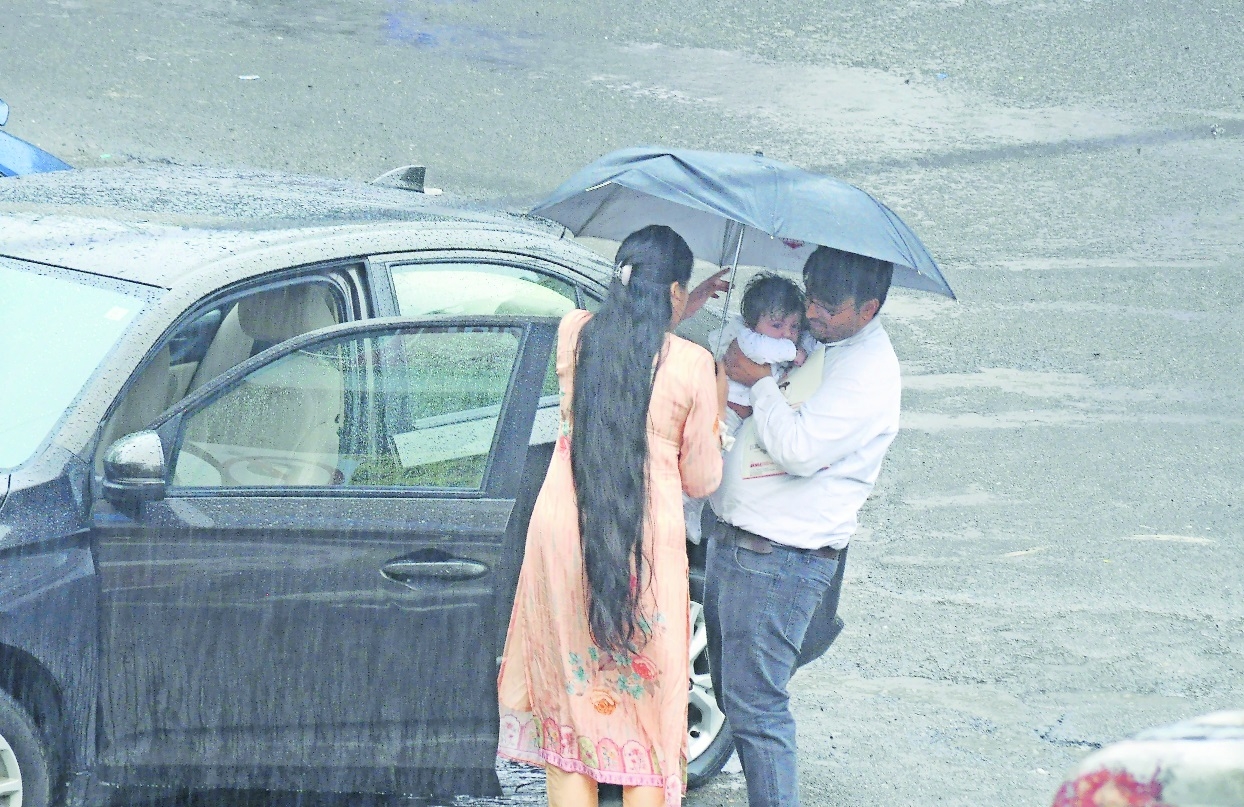‘Gentle parenting’ brings a new dilemma for modern parents
| Date :28-Jul-2024 |

National Parents Day
By Pallavi Borkar-Patil :
“Parenting is the easiest thing
in the world to have an opinion about, but the hardest thing in the world to do.”
— Matt Walsh, author.
IN THIS era of advanced technologies, parenting has become an increasingly daunting task. Though gentle or positive parenting is influencing the modern era, more often than not it overwhelms the parents. Although the concept of gentle parenting is decades old, the term was popularised by British author Sarah Ockwell-Smith through her 2014 book ‘Gentle parenting - How to raise calmer, happier children from birth to seven’. Since then, countless psychologists, experts, and influencers have adopted and professed this approach.
Gentle parenting emphasises validating a child’s emotions, understanding, empathy and communication rather than punishment. In theory, it seems perfect for the Gen Z but parents across the globe are finding it difficult to practise it in real life. Many parents struggle and face confusion as they navigate conflicting advice, differing parenting approaches or personal uncertainties about the best way to raise their children.
With this issue, ‘The Hitavada’ approached noted Clinical Psychologist from Delhi Dr Mala Vohra Khanna; Developmental Paediatrician and Child/adolescent Psychologist Dr Jaya Shiwalkar; and Dr Hina Khan, Head, Post Graduate Teaching Department of Psychology at Nagpur University.
Dr Vohra and Dr Shiwalkar agree that adopting gentle parenting in practical life was a difficult task. Dr Vohra though suggests parents to focus on connecting with children rather than always correcting them.
Dr Hina Khan adds, parents should answer the ‘why’ for the children. They must know why their demand is being refused. “If they know the reason, they would surely come around and understand the situation”.
Dr Shiwalkar affirms that gentle parenting imposes pressure on parents for two key reasons. “First, Indian parents are not used to these methods and secondly, it’s not natural for everyone to be gentle all the time and in all circumstances.”
However, all three psychologists advise, “We need a combination of gentle and disciplined parenting.”
Dr Vohra and Dr Shiwalkar acknowledge that parents are individuals with their own set of emotions and problems but they firmly counsel parents to regulate their own behaviour. “Parents need to regulate their emotions. They must work on their stress and adopt a positive approach so that they are happy enough to deal with the kids,” adds Dr Vohra.
Seconding these thoughts, Dr Shiwalkar advises, “If a parent is frustrated, one must take out a few minutes to regulate emotions, practise deep breathing and then enter the house. Never be very harsh with the kids.”
However, Dr Shiwalkar clears that most parents approaching her are not aware of any parenting style. “There are just a few educated parents who know gentle parenting style but they rarely apply it in practice. Gentle parenting is more popular on social media than in real life,” she feels.
The senior doctor, however, warns parents not to apologise to their children.
“They must confront the child after some time and make children understand that although they had overreacted in the situation, the child’s behaviour was not acceptable either,” she explains.
Dr Khan, however, partially disapproves with this approach. “If parents vent ire on children without the child’s fault then they must apologise to them. By saying sorry, a parent teaches the child to accept his/her mistakes,” she feels.
Dr Khan stresses on effective parenting as against other parenting approaches. “In effective parenting, there is a chance of trials and errors. Parents feel guilty many times, especially working parents and experience stress and anxiety,” she
says and suggests, “Parents should take life positively. Supportive
parenting can come to the rescue in this situation. Husband and wife can exchange their work load, thus helping each other navigate through this phase.”
Validating a child’s emotions is essential but regulating and understanding one’s own emotions is paramount to achieve parental well-being and happy family.